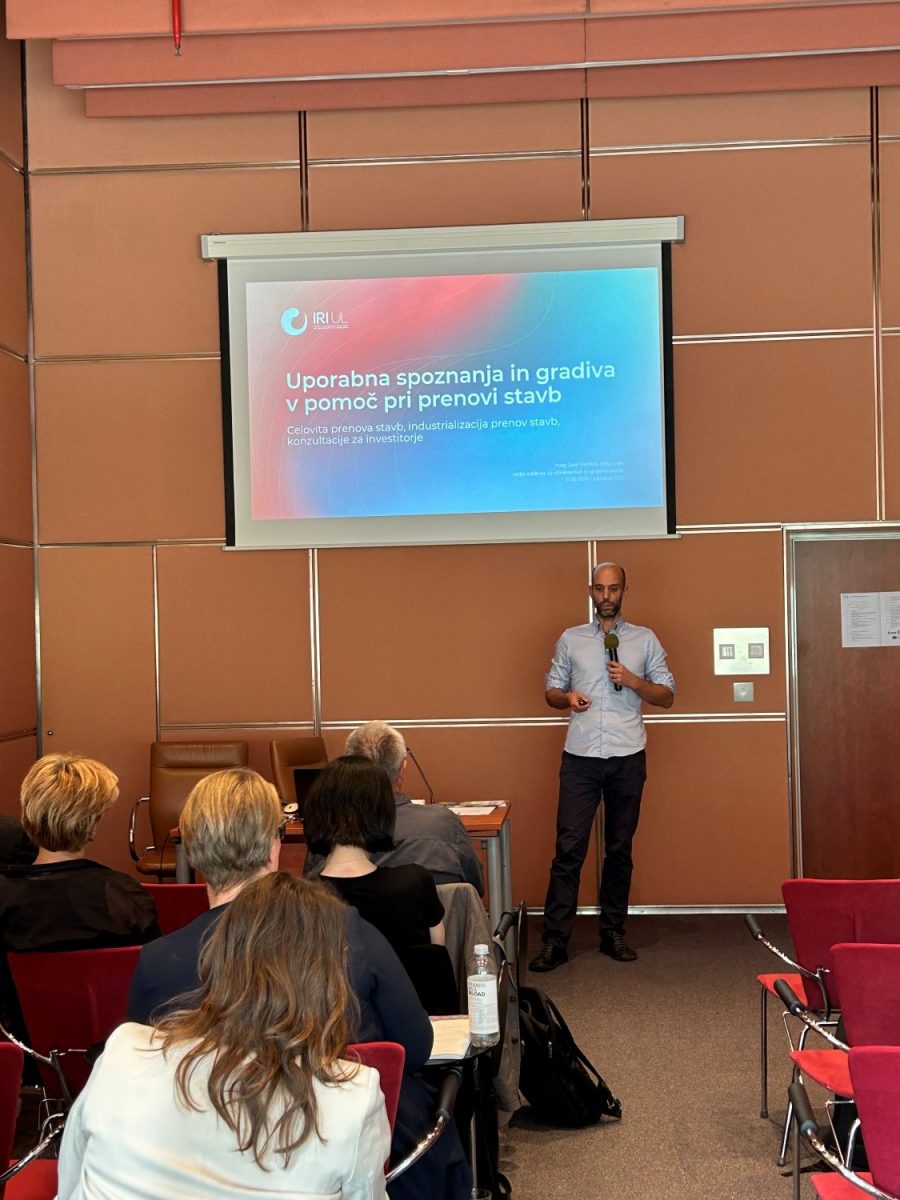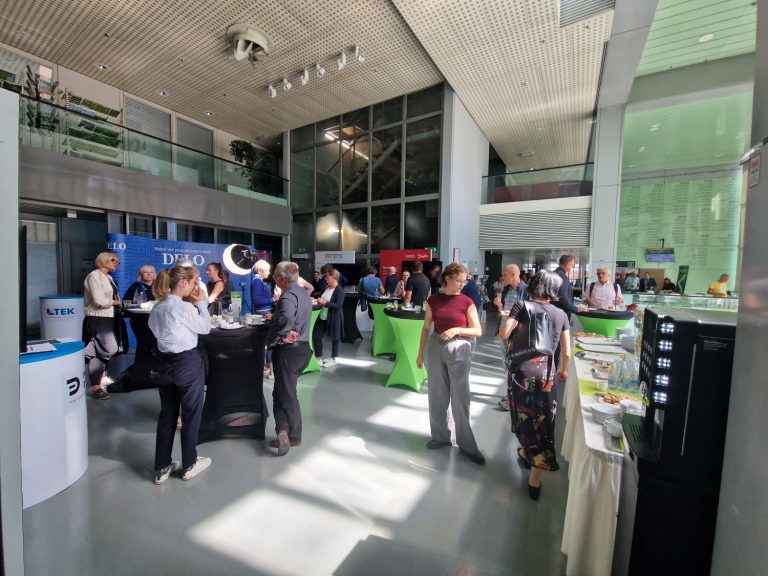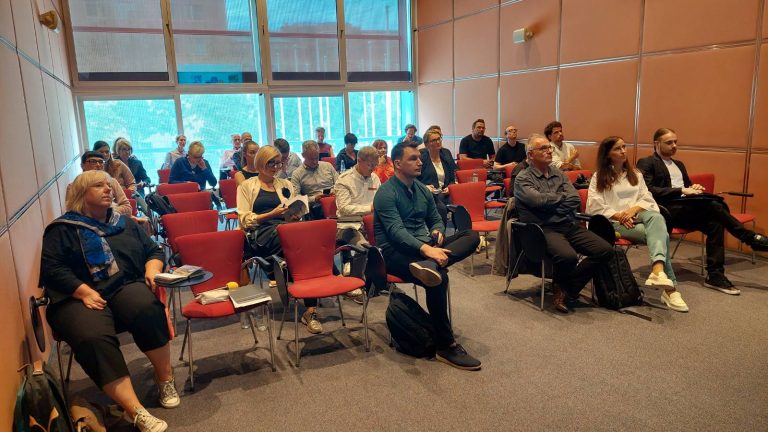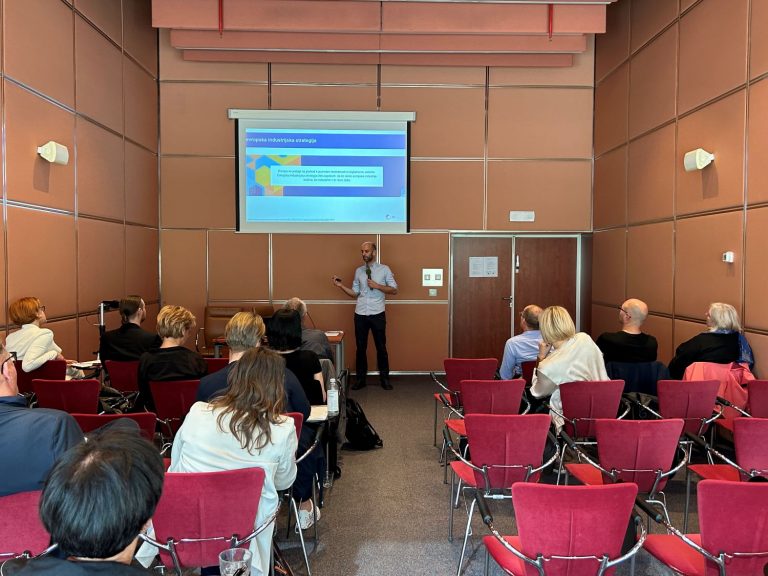
Green Transition in Construction – Low-Carbon Building and Sustainable Construction Materials
What: Green Transition in Construction – Low-Carbon Building and Sustainable Construction Materials
Where: Ljubljana, The Chamber of Commerce and Industry of Slovenia (CCIS)
When: 11th September 2024

On September 11th, we attended the event GREEN TRANSITION IN CONSTRUCTION – Low-Carbon Building and Sustainable Construction Materials, organized by the Chamber of Commerce and Industry of Slovenia.
The event focused on one of the key challenges faced by the construction sector today – the green transition. The main emphasis was on low-carbon construction and the use of sustainable building materials. The goal of the event was to present solutions and approaches to reduce the environmental impact of the construction industry and to encourage a more sustainable development of the sector. Numerous speakers and experts participated in the event, including representatives from The Chamber of Commerce and Industry of Slovenia (CCIS), The Ministry of Climate, Environment, and Energy, Ministry of Natural Resources and Spatial Planning, IRI UL, SID Banka, Architecture Engineering Construction, KSSENA and ELEUTHERIA Maribor – Institute of Social Sciences and Management.
In the first part, we explored the significance of sustainable materials, guidelines for low-carbon construction (Building Matters project), and the development of circular construction products (CirCON4Climate project). The challenges of commercializing sustainable materials were also emphasized, and a new information platform for the environmental labelling of construction products was introduced.
In the second part, we were introduced to the GREET CE project, which focuses on the opportunities of the green transition for the economy in Central Europe. The project’s aim is to enhance innovation capacity in micro, small, and medium-sized enterprises (SMEs) in less developed regions of Central Europe. We were also provided with valuable information about European funding programs, national incentives, and the development of business ideas.
Our laboratory is also involved in the EBENTO project (Horizon Europe), which focuses on the renovation of multi-apartment buildings. This is why we were particularly interested in the final session of the presentations, where the topic was promoting smart investments in sustainable and well-thought-out renovations. We gained insights into the challenges and findings of the RENOINVEST project, which also deals with building renovations. The recurring question is how to move forward with improvements, given the low rate of completed renovations. In addition to enhancing energy efficiency, it is crucial to focus on ensuring comfortable living conditions in renovated buildings.
Jure Vetršek from the Institute for Innovation and Development of University of Ljubljana, with whom our laboratory closely collaborates, shared his extensive experience and practical materials that can aid us in building renovations. He emphasized that the construction sector must become competitive both locally and globally, with a focus on providing quality living environments. In Slovenia, two-thirds of the building stock consists of single-family houses, which, combined with a strong self-build culture and dispersed settlement, presents a significant opportunity. It is crucial to involve people in renovation projects, with material recycling and the use of prefabricated building elements being important steps forward. Additionally, building renovations must be aligned with spatial planning and cadastral systems.
Erik Potočar from the Ministry of Environment, Climate, and Energy discussed the new legislative requirements and the impact of calls for proposals on the construction sector, with a focus on energy efficiency and renewable energy sources in buildings.
Regarding the financing of sustainable building renovations, a representative from SID Bank shed light on financial structures for successful investments in building projects.
In the final presentation, a representative from the Chamber of Real Estate Management, Slovenia, provided a critical overview of the current state of housing legislation, highlighting necessary changes and emphasizing the importance of raising public awareness about energy renovations of residential buildings, where the media could play a significant role. The discussion also focused on how to make energy contracting appealing again by reducing risks for investors and increasing the interest of apartment owners. The introduction of licensing for building managers would certainly enhance the knowledge and competencies of managers, enabling them to better support apartment owners with more professional advice and expertise.


